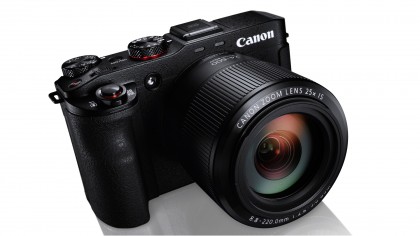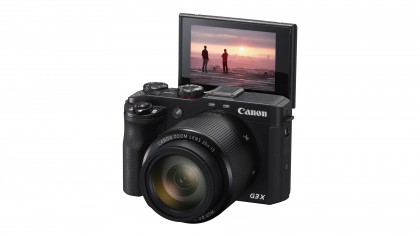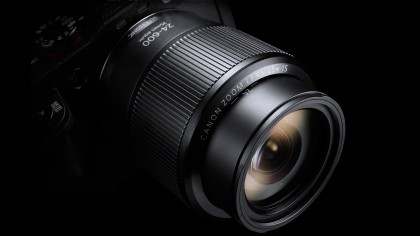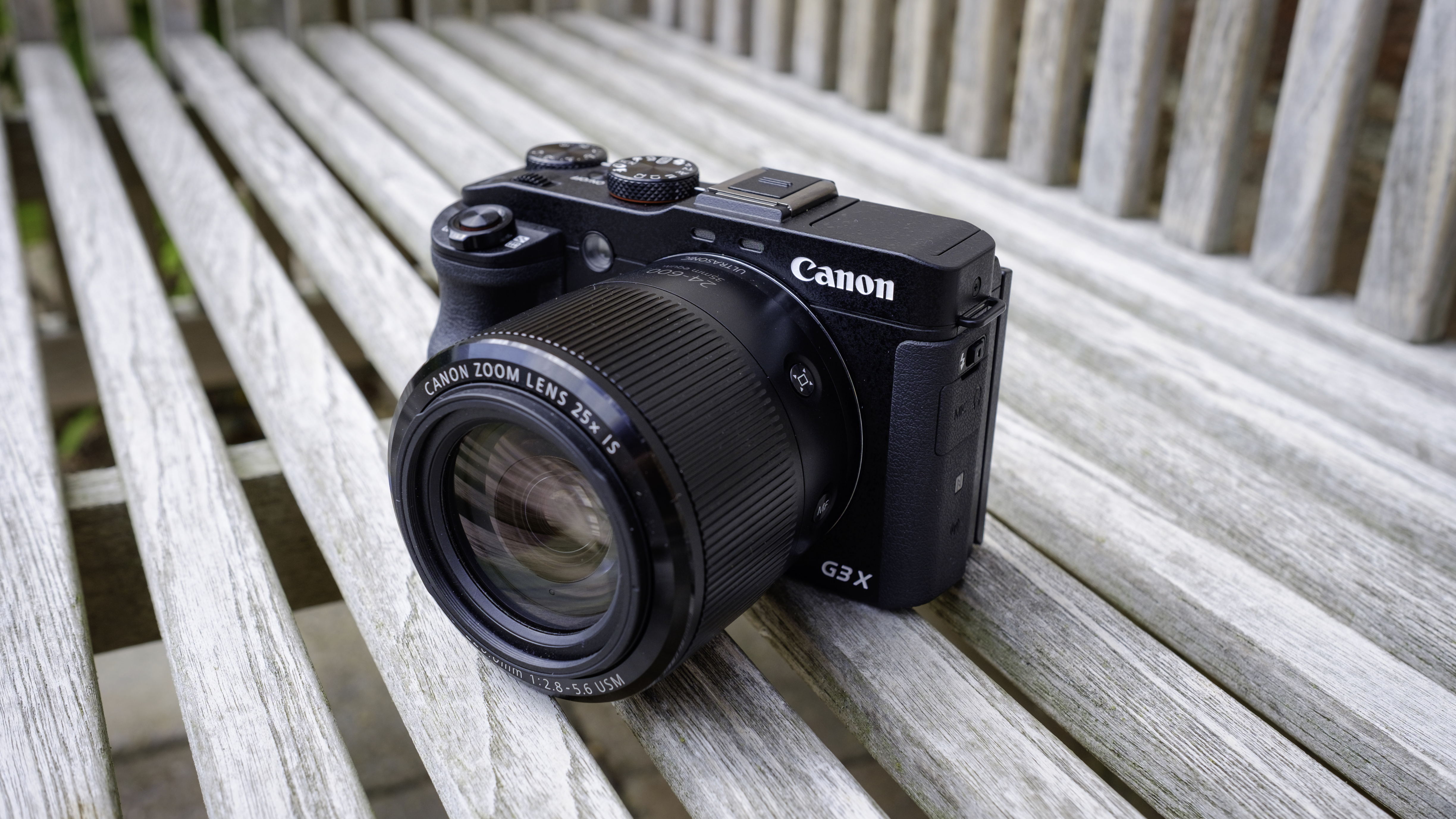TechRadar Verdict
The G3 X delivers SLR-like zoom capabilities in a compact package thanks to its excellent lens and image stabilisation, only falling down when faced with fast-moving subjects. It's not a beautiful camera, but it's well built and easy to handle.
Pros
- +
High-quality 24-600mm lens
- +
Good image quality
- +
Good dynamic range and high ISO performance
- +
High-resolution touchscreen
Cons
- -
No built-in viewfinder
- -
Not pocket-friendly
- -
No vari-angle screen
- -
No panorama mode
- -
No 4K video
Why you can trust TechRadar
The Canon G3 X was announced at the start of this year, although details were few and far between at the time. Its massive zoom range of 24-600mm equivalent appeared to be the stand-out feature at the time, and now that the camera has been officially unveiled the 25x zoom lens still looks to be its USP; rival cameras from Panasonic and Sony have a far more limited focal range, albeit with a faster (wider) aperture at their longer end.
The G3 X has the same one-inch 20-megapixel sensor as its smaller sibling, the G7 X, with a sensitivity range of ISO 125-12,800, and the DIGIC 6 processor found in Canon's top DSLRs. Its versatility make it an obvious candidate for a travel camera, although its relatively bulky size counts against it for those wanting something that's comfortably pocketable – although it's classed as a compact camera, it's more bridge camera in size and feel.

The G3 X comes with a solid, if not class-leading, set of specs. Shooting modes, including Manual, Aperture priority, Shutter priority, Program and a variety of auto, scene and special effect modes are accessed through a dial on the top plate, and there's also a Custom setting.
A second dial to the right enables you to apply exposure compensation of up to three stops in one-third of a stop increments, and in front of this are a movie button and a scroll wheel for adjusting settings. The 3.2-inch tilting touchscreen has a high 1,620,000-dot resolution.
You can shoot in both JPEG and raw formats, separately or simultaneously, and the 1-inch sensor has a maximum image resolution of 5472 x 3648 pixels in its native 3:2 format. Alternative image ratios of 1:1, 4:3 and 16:9 are also available. The G3 X can shoot full HD movies at 60 and 30fps, although it lacks the 4K functionality of some competitors.
The 24-600mm equivalent lens offers a very fast (large) f/2.8 aperture at its widest setting, and a reasonable f/5.6 at its longest setting, although you are limited to f/5.6 from 200mm. At 50mm the widest available aperture is f/4, and at 85mm it's f/5.

The minimum focusing distance of 5cm is available from 24mm to 100mm. At 600mm, the closest focussing distance is 85cm or 33.47 inches. The digital zoom offers additional reach in full auto modes, up to approximately 100x enlargement.
Sensitivity ranges from ISO 125 to 12,800 with ISO 400 and 12,800 available in auto ISO mode. You can alter the maximum ISO that the camera can select in auto mode, but not the minimum setting, nor can you choose set a minimum shutter speed; the one-inch sensor and top of the range DIGIC 6 processor ensure noise is well controlled, but it's a shame that the full sensitivity range isn't available in auto mode.
The G3 X boasts five-axis image stabilisation, with a choice of low, standard and high (video only) settings. With such a long lens and no viewfinder, you'll want to see which settings suit you best and perhaps err on the side of caution.

Multi, spot and centre-weighted average metering modes are available, along with exposure bracketing by up to two stops, in one-third of a stop increments across three frames. You can choose between Single shot, Continuous and Servo AF modes, or manual focusing (including focus peaking). The camera can capture 5.9 frames per second in Continuous drive mode (JPEG only), or 3.2fps in Continuous with AF mode.
Single-point focus (selective and central) is available as well as multi-area tracking, along with a plethora of face-detection focus options in full auto mode. In addition, you can touch-focus using the touchscreen.
Wi-Fi/NFC functionality enables you to connect the camera to your computer, smartphone or tablet using Canon's free Camera Connect app.
